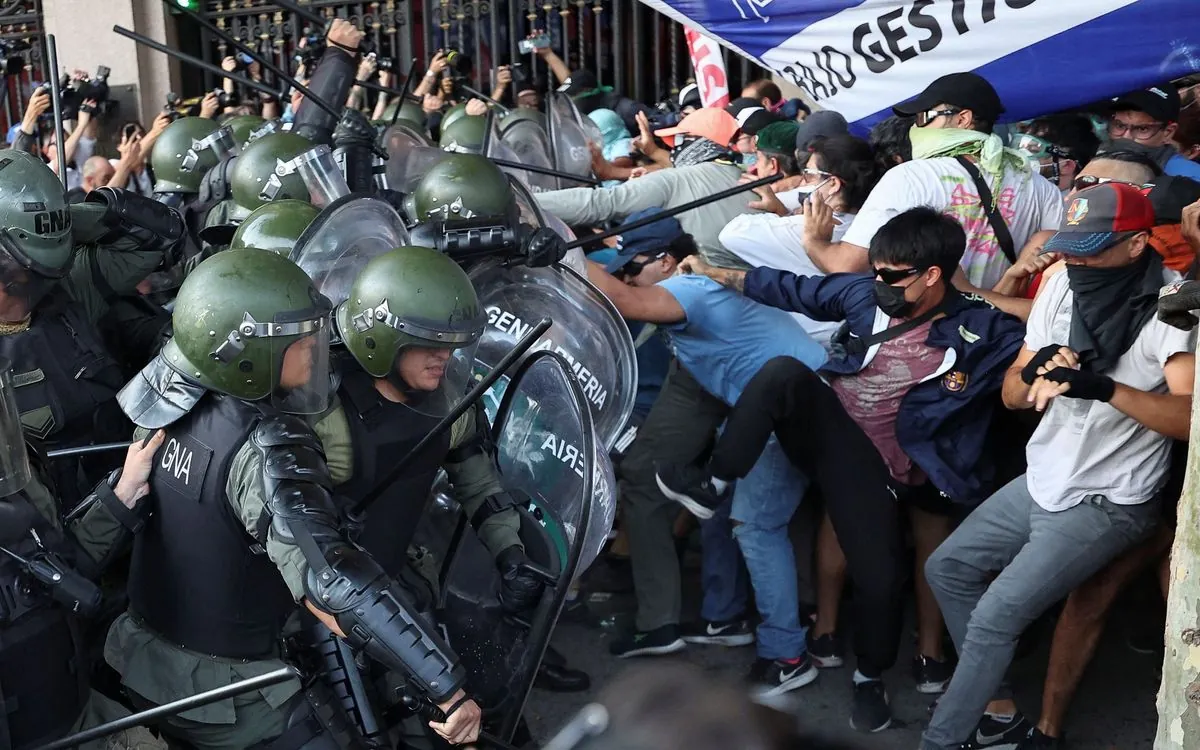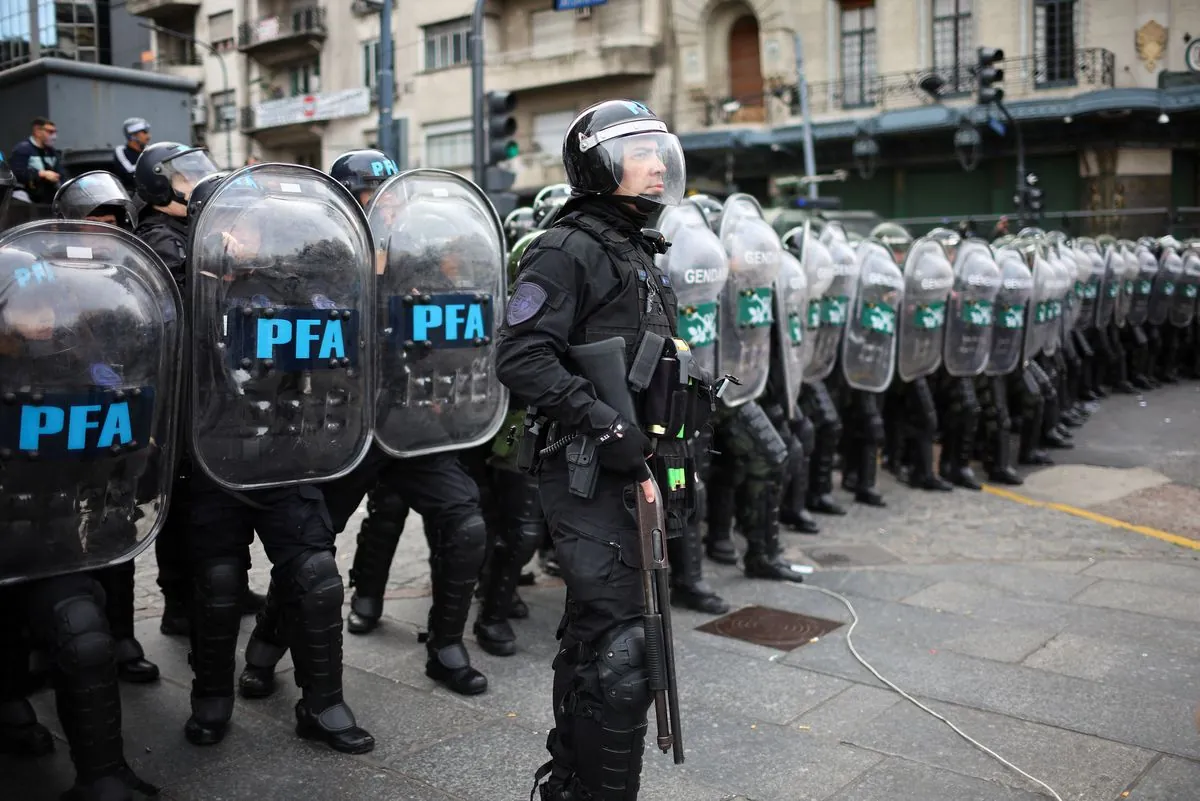Argentine Pension Bill Blocked, Sparking Protests in Buenos Aires
Argentine lawmakers rejected a pension increase, leading to clashes between protesters and police in Buenos Aires. The vote highlights tensions over President Milei's austerity measures aimed at economic recovery.

On September 11, 2024, Argentina's capital witnessed tumultuous scenes as protesters clashed with law enforcement outside the nation's Congress. The unrest erupted following a crucial vote in the Chamber of Deputies, where lawmakers failed to secure the necessary two-thirds majority to approve a proposed pension increase.
The pension bill, which had been previously vetoed by President Javier Milei, garnered 153 votes in favor and 87 against. Despite the majority support, it fell short of the required threshold to override the presidential veto. Milei, who assumed office on December 10, 2023, had opposed the measure, citing concerns about its potential impact on the country's fiscal balance objectives.
As news of the vote spread, hundreds of demonstrators in central Buenos Aires breached police barriers, leading to confrontations with security forces equipped with riot gear. This incident underscores Argentina's long-standing tradition of street protests and social mobilization, which has been a significant feature of the country's political landscape for decades.

The rejected pension hike is part of a broader context of economic challenges facing Argentina. The country has grappled with recurring economic crises and persistently high inflation rates for years. In 2023, Argentina's inflation rate soared to a staggering 211.4%, ranking among the highest globally. This economic instability has contributed to a rising poverty rate, which reached 40.1% in the first half of 2023.
President Milei's administration has implemented a stringent austerity program aimed at addressing years of fiscal deficits and curbing inflation. While these measures have shown some positive effects on state finances, they have also led to increased economic hardship for many Argentinians.
"The government's austerity measures are a double-edged sword. While they may improve fiscal balance in the long term, the immediate impact on citizens, especially pensioners, is severe. This tension is at the heart of today's protests."
Argentina's economic struggles are not new. Once considered an "economic miracle" in the early 20th century and one of the world's wealthiest nations, the country has since faced numerous challenges. It has defaulted on its sovereign debt multiple times, most recently in 2020, and has received several bailouts from the International Monetary Fund (IMF).
The pension system, which has undergone various reforms since the 1990s, remains a contentious issue. Argentina's strong labor unions and social movements have historically played a significant role in shaping public policy and resisting austerity measures.
As Argentina continues to navigate its complex economic landscape, the events of September 11, 2024, highlight the ongoing struggle between fiscal reform and social welfare. The country's path forward will likely involve a delicate balance between addressing economic imbalances and meeting the needs of its citizens, particularly in light of its history of political polarization between left-wing and right-wing factions.


































